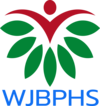Department of Botany for UG, PG, Research, J.E.S’s, Arts, Science and Commerce College, Nandurbar-425412, India.
World Journal of Biology Pharmacy and Health Sciences, 2025, 21(01), 235-242
Article DOI: 10.30574/wjbphs.2025.21.1.0043
Received on 30 November 2024; revised on 08 January 2025; accepted on 10 January 2025
Digitization of traditional medicinal knowledge bridges the gap between ancient wisdom and modern science, ensuring the preservation and sustainable use of this invaluable cultural heritage. This paper reviews the importance of digitization, highlighting its role in preserving oral traditions, fostering global research collaboration, and promoting biodiversity conservation. It explores the integration of traditional knowledge with bioinformatics tools for drug discovery and sustainable harvesting practices. Furthermore, the review identifies key challenges, such as ensuring data accuracy, ethical concerns, and accessibility for marginalized communities, while proposing solutions through emerging technologies like artificial intelligence and blockchain. By leveraging global databases and tools like TKDL, BOLD, and GBIF, digitization creates a pathway for advancing traditional medicinal knowledge into a universally accessible, scientifically validated resource.
Ethnobotany; Digitization; Bioinformatics; Databases
Preview Article PDF
Dipak A. Magare and Madhukar. B. Patil. Ethnobotany in the digital age: Opportunities and challenges of traditional knowledge digitization. World Journal of Biology Pharmacy and Health Sciences, 2025, 21(01), 235-242. Article DOI: https://doi.org/10.30574/wjbphs.2025.21.1.0043.
Copyright © 2025 Author(s) retain the copyright of this article. This article is published under the terms of the Creative Commons Attribution Liscense 4.0
